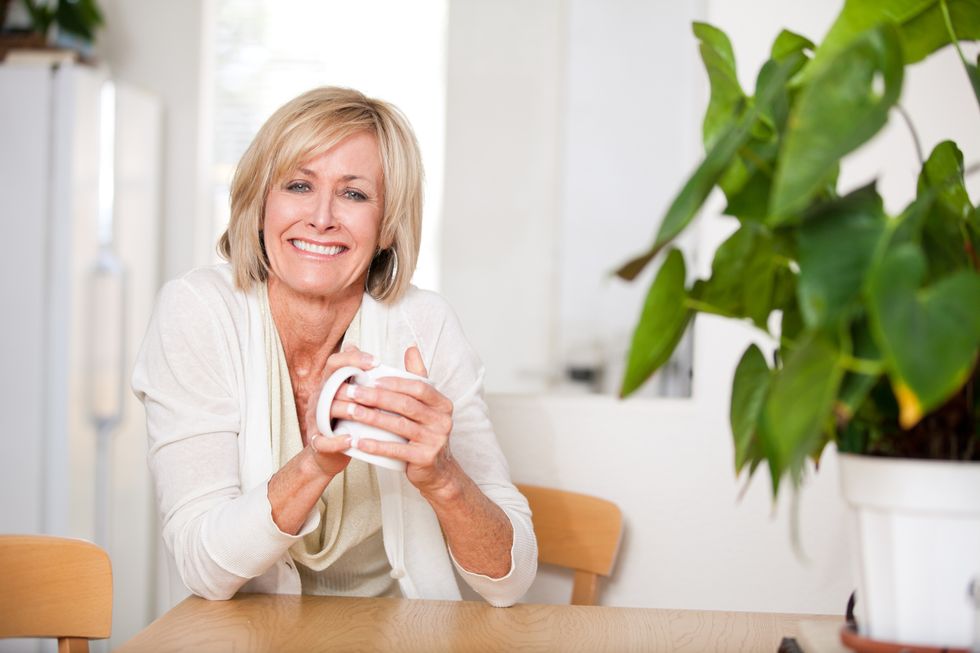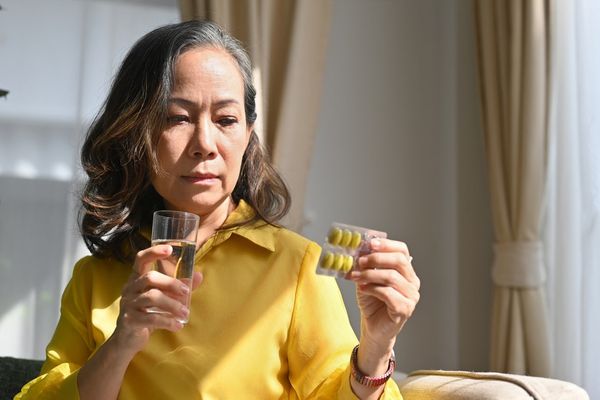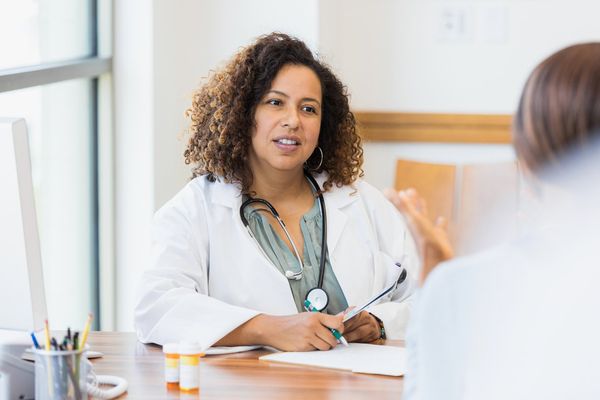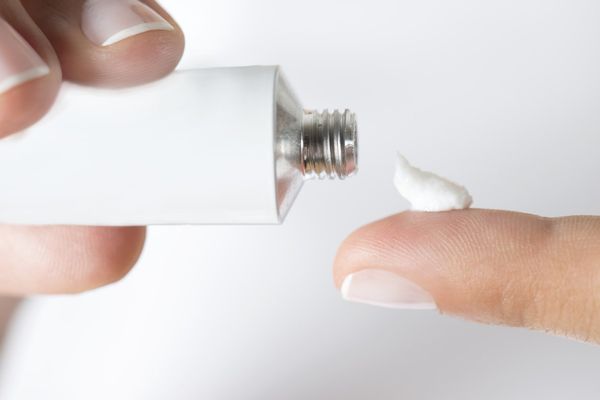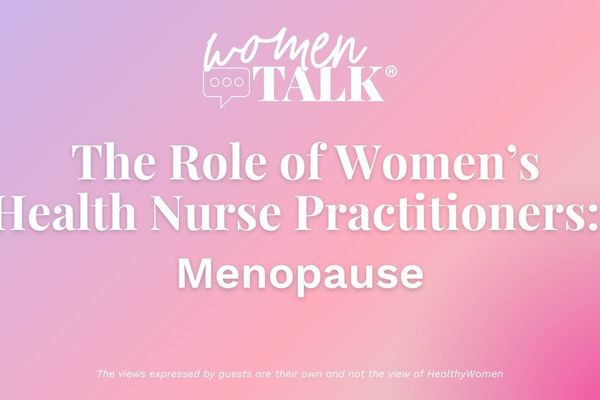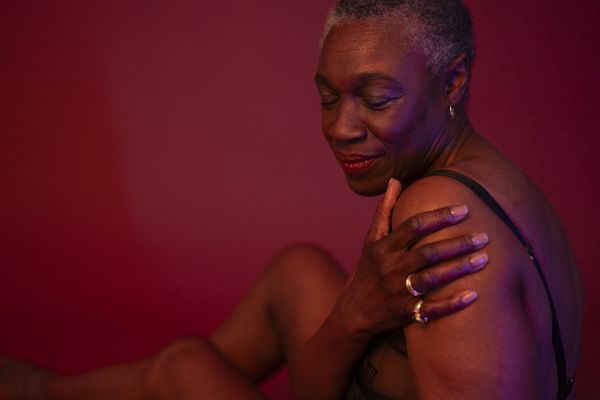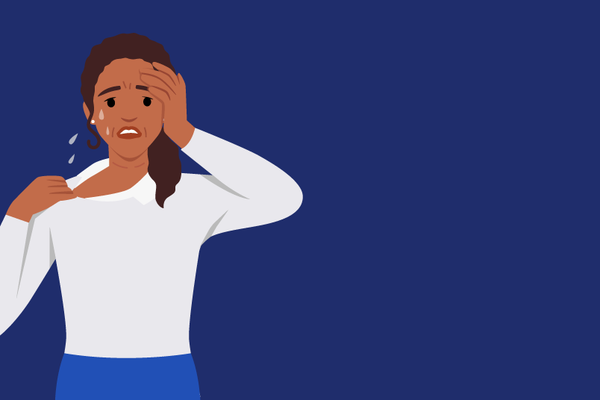It seems that lately everyone is talking about menopause.
OK, not everyone, but the people I associate with.
We're all of "that age": either we've gone through it or we're going through it.
And, as unreliable as memories can sometimes be, when it comes to menopause mine are crystal clear (even though my periods officially ended years ago in my early 50s): the hot flashes that torched my inner furnace, the night sweats that soaked my dry sheets, the moods that brought back (bad) memories of PMS when I'd fall into depressions so deep I swore I'd never climb out (but I always did), the insomnia, heart palpitations, dry-skin-and-everything-else.
The thing is, menopause is a relief: no more bleeding; no more pregnancy worries; no more disabling cramps; no more premenstrual mood swings. But the other thing is, menopause is a passage into a new phase of life and ushers in a new set of challenges. And many of us are unprepared for or even frightened of this foreign territory.
There is no denying that the onset of menopause brings very real health challenges and risks and affects the quality of your life. Estrogen—or the decline of it—has a big influence on our bodies.
My LDL (bad) cholesterol numbers started climbing the year after I officially entered menopause; so did my blood pressure. My bone density, on the other hand, started falling to the point of near-osteoporosis (even though I exercise and eat well). My concentration was off for a while, too.
It's important for women to know that this is not the time to ignore their health. But many do. I recently read a startling statistic: Although 60 percent of women who have major menopausal symptoms seek help from a health care professional, close to three-quarters of those who do are left untreated. So, nearly one-third of menopausal women in our country are needlessly suffering. Given that 6,000 women reach menopause each day, that's a lot of women with menopausal symptoms.
Find outWhat No One Tells You About Menopause.
Part of the problem is that many health care professionals are not knowledgeable; they haven't had training and are not up to date. In most medical schools and residency programs, there is no training specifically for menopause, and only about 20 percent of ob-gyn residency programs provide it.
This all supports the fact that we need to be our own health advocates. Menopause symptoms are not all in your head—they're real, and they have real implications for your health.
If you have health concerns, you need to discuss them with a health care professional. And if yours won't listen or doesn't seem interested or knowledgeable, find one who is.
Do you know there are certified menopause practitioners who specialize in health care for menopausal women? Years ago, the North American Menopause Society recognized the need for high-quality care for this select population and developed a competency exam for all licensed health care professionals, awarding the credential to those who have demonstrated expertise in the field, including doctors, physician assistants, registered nurses, licensed clinical social workers and more. To find out more about the certification, click here. To help you locate one in your area, click here.
You are far from helpless in this life transition! There are plenty of everyday things you can do yourself to stay healthy.
- Track your hot flashes. Hot flashes can be set off by certain things like caffeine, alcohol, a too-hot room or stress. Keep a record so you can track your personal likely culprits.
- Prep for night sweats. Being prepared is half the battle—you don't want to be caught tearing off your long-sleeved PJs or kicking off your down quilt in the middle of the night (those things alone can disrupt sleep even more than the night sweats!). Instead, dress in light breathable fabrics (or sleep nude), replace your quilt with light blankets, keep a fan and some ice water at your bedside and a bag of frozen peas under your pillow.
- Exercise regularly. It's got so much going for it (in my opinion, it should be written on every prescription pad). Not only can exercise help with sleep (just don't do it too close to bedtime), but it's a powerful stress-reliever and bone-builder, too. Exercise is also an effective way to maintain, and build, cognitive function and burn off extra calories.
- Know your products. There are plenty of over-the-counter products for vaginal dryness, ranging from lubricants for sex to moisturizers for everyday comfort. You can also talk to your health care professional about prescription low-dose estrogen, which can be applied directly to the vagina in various forms (creams, rings or suppositories).
- Change up your skin and hair-care routine. Your skin can go through many noticeable changes: elasticity drops, dryness increases, fine lines and wrinkles surface and you're more prone to age spots, thin skin and, yes, even acne. Hair might get thinner, drier and unrulier. Now might be a good time for some product reboots.
- Challenge your brain. Fuzzy thinking, trouble with concentration, mood swings. It can happen. That's why it's important to keep your brain challenged. It can not only take your mind off your woes but can help build important neural connections necessary to maintain cognitive health and stave off age-related damage. There are lots of brain games you can play, but really anything that requires focus and concentration can help build your brain's muscle.
- Reach out. There's power in connecting with other people. It's not just that misery loves company (well, there is that), but plenty of research supports the strong connection between social interaction and health. Need proof? This post hit a hot spot with almost 300 women, who shared their own personal stories. (Comments have been removed.)
This post originally appeared on mysocalledmidlife.net.

